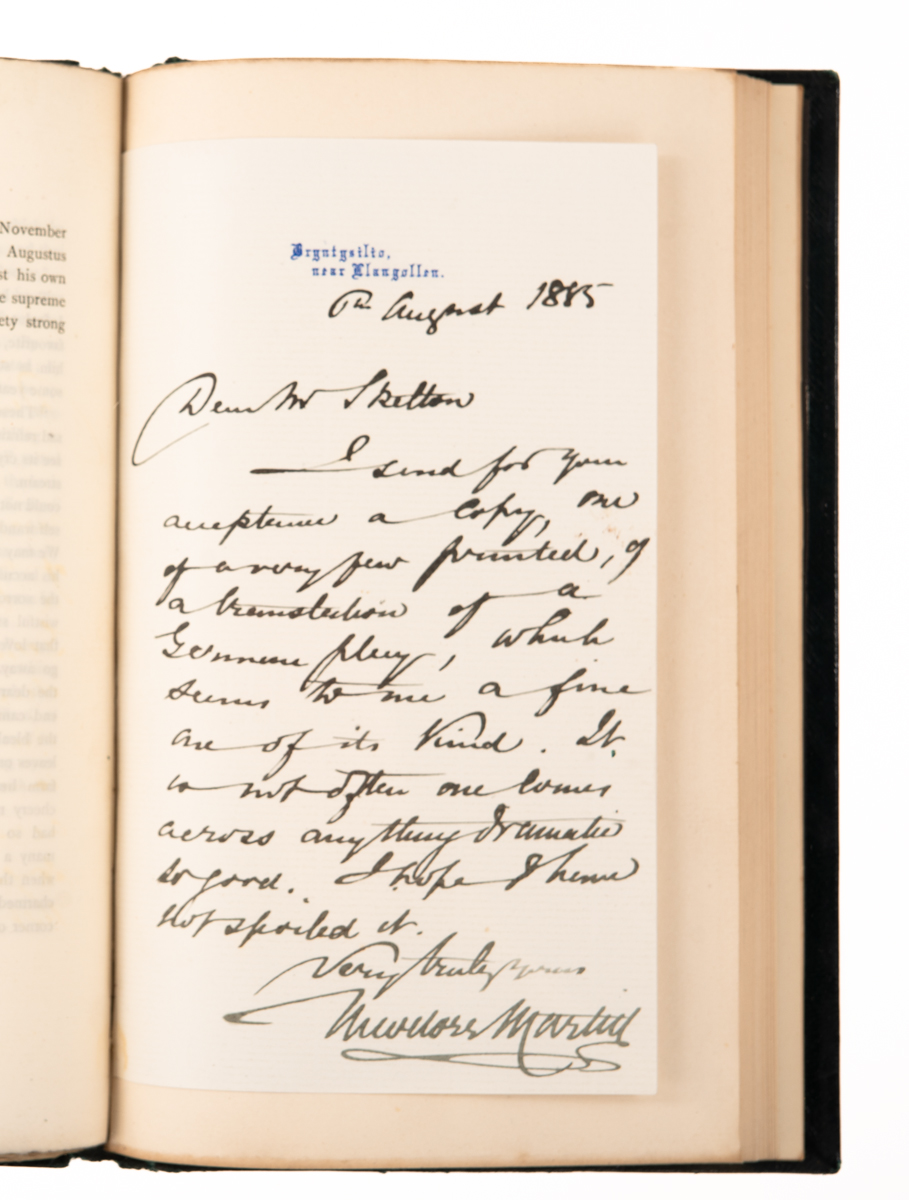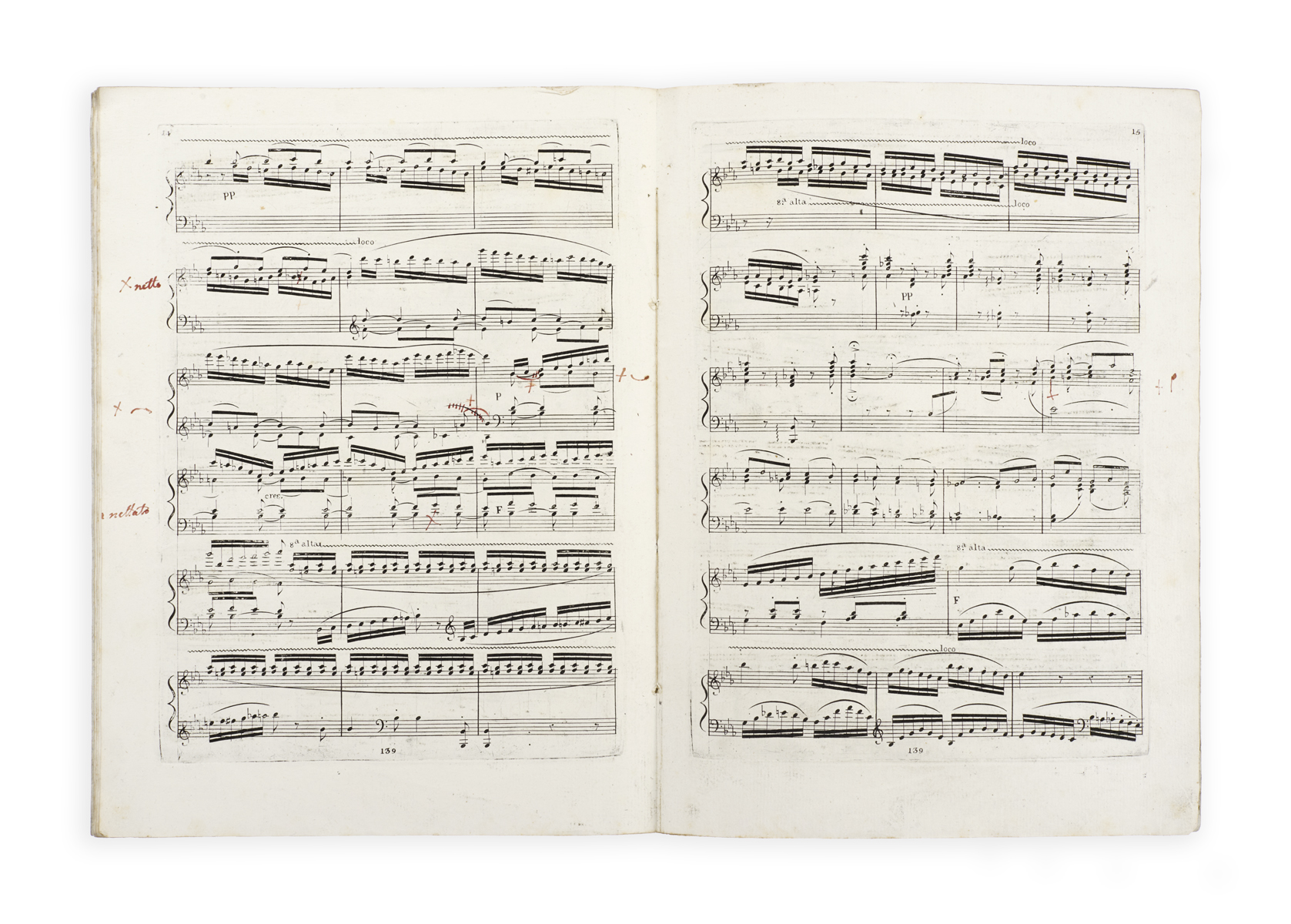
ALFIERI, Vittorio. LLOYD, Charles, translator.
The Tragedies of Vittorio Alfieri; translated from the Italian … In three Volumes …
London: Printed for Longman, Hurst, Rees, Orme, and Brown … 1815.
3 vols., 12mo., lightly browned; a very good copy in later nineteenth century half plum morocco and marbled boards, gilt, joints and corners rubbed.

Added to your basket:
The Tragedies of Vittorio Alfieri; translated from the Italian … In three Volumes …
First edition of this translation, which Lloyd undertook ‘on the suggestion of a friend whose judgement I highly respect’. This friend was likely Southey, who he addresses as his ‘sponsor’ in the ‘Dedicatory Sonnet’. He held Southey in high esteem, and benefited from his friendship through testing times. Lloyd’s temperament was always difficult, but in 1811 he began to suffer serious auditory delusions, which clouded the rest of his life in periodic spells of insanity. De Quincey suggests that he began the Alfieri project to divert his mind from the onset of madness, and held that Lloyd was amongst the most interesting men he had known.
Lloyd explains his aim to ‘catch perspicuously the general meaning of Alfieri, without at all binding myself down for a literal word-for-word translation, or to a close imitation of his style’. This is indeed a work of some poetic licence, although he maintains the original’s eight dedications to various nobles, including Charles I ‘an unfortunate and dead king’, and General Washington ‘the most illustrious and free citizen’. These, especially the final dedication to ‘The future People of Italy’, convey Alfieri’s hopes for the rousing lessons of antiquity.

